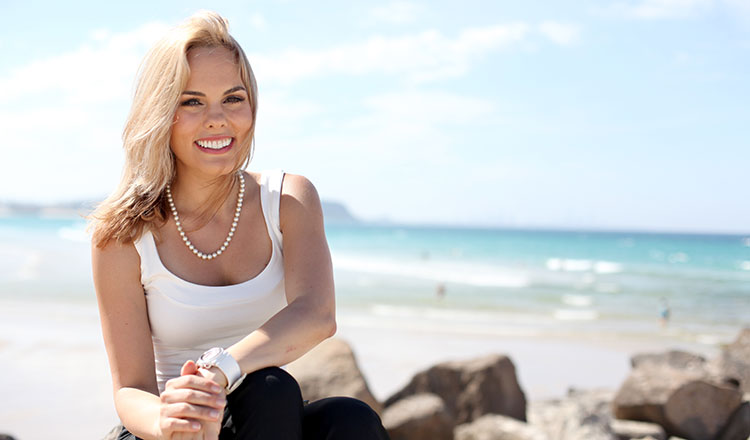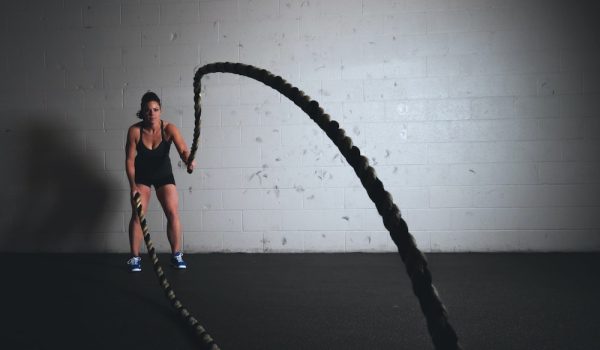“I meet so many women who feel guilty for looking after themselves,” says Dr Cris Beer, author of Healthy Habits: 52 ways to better health. “They run around looking after everyone else and often neglect their own health as a result. But there comes a point where a lot of women realise that their health, wellbeing, and appearance has suffered as a result of this selfless lifestyle. For so many years they have put all their energy into their careers, family, friends, partners, and other commitments that they have ended up with no energy left for themselves. The result is a worn out, strung out, and depleted woman who has lost her spark.”
But don’t despair. There is a way that we boost your health while maintaining your career and relationships. Here, Dr Beer reveals the tricks…
Tip #1. Ration Your Energy
“Many of us think we will have endless reserves of energy but unfortunately this is not the case,” warns Dr Beer. “We have a certain amount of energy hormones available for the day and largely the way that you will feel today is determined by how much energy you expended yesterday. If you had a really busy day running around doing lots of tasks yesterday and spent little time resting or relaxing then expect to feel tired tomorrow. This can result in us feeling frustrated because we just do not have the energy to exercise or plan healthy meals.
The better approach is to ration out our energy for the week. Plan less hectic days or ‘rest days’ throughout your week to recover. This might mean that on a rest day you finish a little earlier from work and go and get a massage or do a yoga class. Consider your week as a journey from A to B with Monday being the start of your journey and Sunday being the destination. To get from A to B we need to have enough fuel in our tank or at least plan to stop and refuel along the way. This analogy applies to our energy levels.”
Tip #2. Less Is More
“When it comes to finding the time to be healthy planning less activities is often better than going gung ho at planning to do lots of healthy activities and getting none done because we become overwhelmed. Focus on making just one small change a day and when that is mastered as a new habit in your lifestyle move on to the next small habit. Simple habits such as planning to do just 20-30 minutes of exercise a day make a big difference to our overall physical and mental wellbeing. We do not need to spend a lot of money to be healthy either. Keep it simple and remember that small changes done consistently are better than planning to do lots of different activities but not being able to do any of them due to time or financial constraints.”
Tip #3. Be Prepared for Resistance
“Any positive changes that we want to make in our lives will be met with resistance so being prepared for this will help to keep us focussed. This resistance might be from external sources; for example, from friends who do not understand why you do not want to go out drinking every weekend because you want to get up early to do an exercise class. They may give you a hard time and make you feel guilty. This type of resistance is often a reflection of their own insecurities and guilt for not prioritising their own health.
The second type of resistance can come from ourselves in the form of excuses and self-sabotage. This too is common and a normal part of change. Make a list ahead of time of the excuses you are likely to use and come up with a list of reasons why those excuses will not hold. For example, an excuse might be that you cannot exercise because it is raining. An easy rebuttal to this excuse would be to have recorded or saved to your You Tube favourites an indoor Pilates routine.
Self-sabotage, on the other hand, tends to be more subconscious and can be related to feelings of low self-worth and value. If you find you always give up when you are doing so well or you find you start binge eating again then this might be self-sabotage at work in your life. Talking to a trained counsellor, psychologist, and/or hypnotherapist can be helpful in this case.
All in all being healthy does not mean we have to sacrifice those things we love and value in our life. Quite the opposite, finding the time to be healthy means that the best of who we are is able to be shared with others. We need to think of being healthy as a necessity and not as being selfish.”
Dr Cris Beer is the author of Healthy Habits: 52 ways to better health (Rockpool Publishing $29.99) available at book stores and online here






